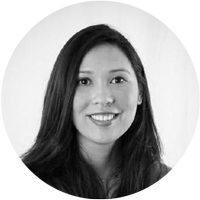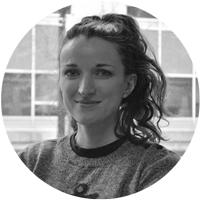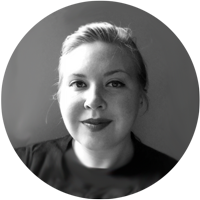More Affordable Options for All
Villanova’s Affordable Materials Project helps students save money and increase access to the course materials they need to succeed.
Information has become an increasingly expensive commodity—and the price tag on many academic materials, textbooks and subscriptions reflects that. At Villanova, the average cost that students incur for course materials is $940 per year.
To alleviate some of the burden and improve access to course materials, Villanova launched the Affordable Materials Project (AMP) in 2017. Lauren Ward, MEd, the Academic Advancement Program counselor and coordinator for Villanova’s Center for Access, Success and Achievement (CASA), founded the project, which is a campus-wide collaboration between CASA, Falvey Memorial Library, Villanova Institute for Teaching and Learning, and the Office of the Provost.
“AMP focuses on different ways that faculty and students can save on course materials, including e-book matching, electronic course reserves and the promotion of open educational resources,” says AMP member Marianne Watson, director of Resource Management and Description at Falvey. So far, the multi-faceted project has been highly successful.
A Match Made in Falvey
AMP’s E-Book Matching Program, for example, took off quickly. Beginning in Spring 2018, the University Shop started sharing the list of faculty-assigned books with the Library. Each semester, the Library matches these required book titles to electronic books that are already in Falvey’s collection and that allow unlimited simultaneous users, and Falvey staff also identify additional titles that the Library can license. Each matched electronic title gives students the option to save the cost of a textbook.
“In five short semesters, the cumulative potential student savings of the E-Book Matching Program alone has now exceeded $718,000,” says AMP member and Business Librarian Linda Hauck, MLS, MBA. “The total Library cost was less than $43,000—that is a 1670 percent return on investment.”
“
AMP focuses on different ways that faculty and students can save on course materials.”
Marianne Watson, director of Resource Management and Description at Falvey
Another AMP member, Falvey’s Metrics and Assessment Librarian John Banionis began compiling this purchasing and usage data to demonstrate the program’s value over time. And with each semester, it grows. “From the Library’s perspective, when purchased e-books are reused in courses in future semesters, the return on the initial investment continues to build over time and the number of AMP titles offered per semester grows,” he says.
Collaborating to Cut Costs and Enhance Learning
The E-Book Matching Program is just one of many cost-saving initiatives AMP has implemented and promoted to get the word out to students and faculty that there are plenty of options for affordable course materials without having to sacrifice quality.
More recently, AMP launched the Open Educational Resources (OER) Faculty Adoption Grant, funded by the Office of the Provost and administered by Falvey Memorial Library. The pilot grant is designed to encourage faculty to select free, openly licensed textbooks as their primary course materials. Hauck is hopeful that it will garner equally impressive savings and enhanced learning.
In 2020, five grants of $1,000 were awarded to faculty who revised or designed a course around using open educational resources. These resources are free for students to use, and faculty can customize the content to better suit their educational goals for a course. “These grants will potentially save students over $23,000 during the 2020–21 academic year, a 360 percent return on investment,” Hauck says.
In a recent forum on the OER Faculty Adoption Grant, students expressed appreciation for long-term continued access to open educational resources, and faculty noted that the resources improved class cohesiveness because all the students were using the same materials. “Most importantly, students said using open educational resources made them feel like they belong at Villanova because the University listens to their concerns and takes action to help their families manage costs,” Hauck says. ◼︎




